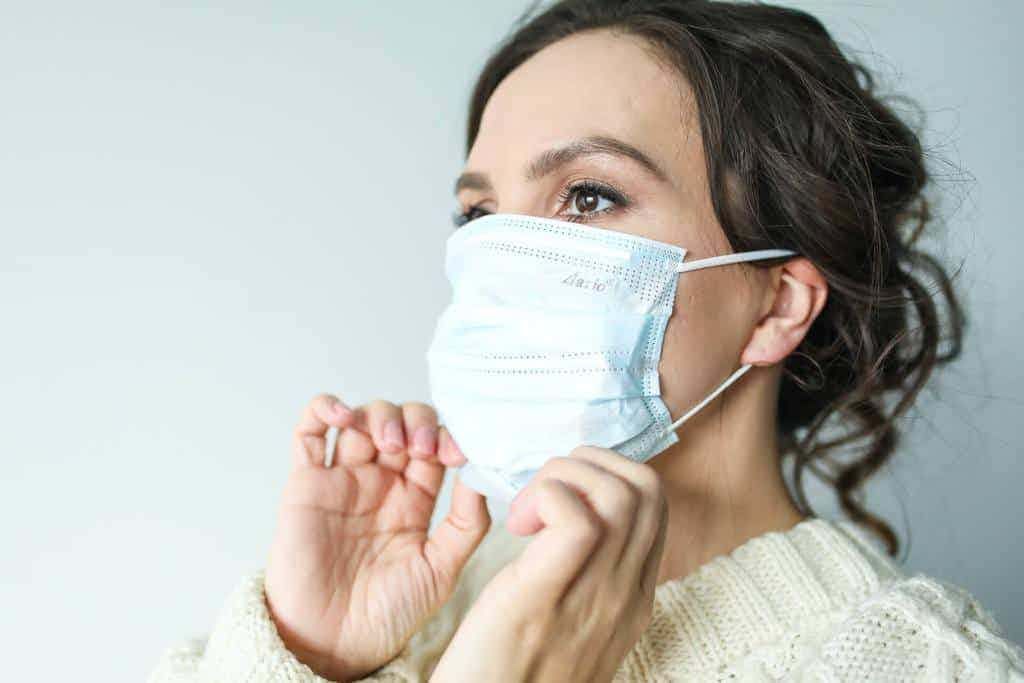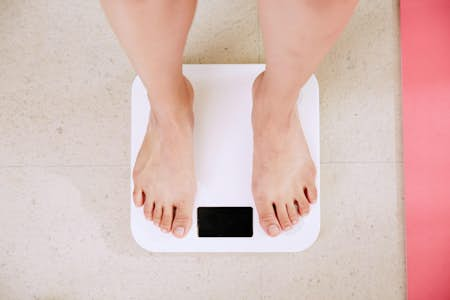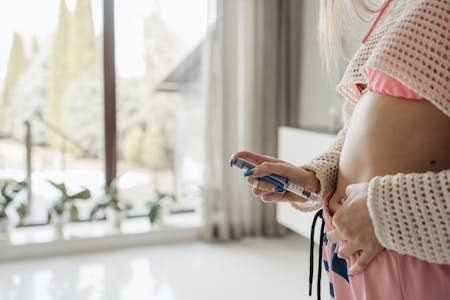The wearing of face masks to prevent the spread of COVID-19 has been a contentious issue throughout the pandemic. Those opposed to donning a face mask have offered a far-ranging number of reasons from matters of comfort to safety, to personal liberty. At the beginning of the pandemic, neither the World Health Organisation (WHO) nor the UK government saw any benefits to covering one’s face. Unsurprisingly, being told we should now be doing so has led to a greater apprehension of mask-wearing among many.
The Early Objections
When COVID-19 hit the UK in January 2020, government advice (relating to England only; the devolved administrations in Northern Ireland, Scotland, and Wales have always set policy themselves) was "don't wear a mask." On 12th March, England's deputy chief medical officer Dr Jenny Harries stated that wearing a mask is "not a good idea."
The UK government were not alone in this. In a document published on 6th April, titled “Advice on the use of masks in the context of COVID-19,” the WHO listed several reasons not to wear masks. The main issues being:
- When misused, masks could result in a higher possibility of self-contamination.
- Wearing masks might lead to poor adherence to social distancing.
- People may neglect hygiene standards and fail to wash their hands regularly.
- According to the few studies done, most found that wearing a mask did not provide the wearer with much protection.
On an individual level, masks are uncomfortable to wear.
- They make breathing difficult.
- They can cause headaches and spots, and they steam up your glasses.
- They make some people feel claustrophobic or anxious.
Face masks are also a barrier to communication and are often considered dehumanising. The UK government and the WHO were reluctant to endorse the use of masks at the onset of the pandemic. When the decision was later made to recommend their use, the already sceptical public saw this as a U-turn, causing confusion as to when and why face masks are necessary.
A Change of Policy
When the UK government announced that from 24th July face-coverings would be mandatory in shops and supermarkets, it was widely seen as a U-turn. It is argued the UK government and the WHO’s stance on masks have changed along with the development and changes in the pandemic. Initially, it was thought the way to stem the number of rising cases was to stay home and to keep 2 metres distance from others. There was a feeling endorsing the use of face masks may lead to people not following these fundamental safeguards. The change in policy toward mask-wearing, apart from the need to get people on public transport and back to work, has moved from the concept of self-preservation to preventing the spread of the virus. According to Professor KK Cheng, writing on the University of Birmingham website ‘During the COVID-19 pandemic, mass masking with cloth masks is an important and sustainable adjunct to social distancing and hand hygiene. It should be seen as an altruistic act rather than self-protection’.
Types of Mask
Because masks are now with us, it is worth looking at the three types of mask commonly available and how effective they are.
- Homemade, cloth masks can be as simple a bandana covering your mouth and nose. These masks do not offer the wearer much protection but may reduce the spread of bacteria and viruses by asymptomatic people (those who have the virus but are not showing any symptoms).
- Surgical masks are disposable and are usually rectangular, loose-fitting masks with pleats or folds. They also typically have a thin metal strip that bends around the wearer’s nose. They protect the wearer from large droplets but don’t filter smaller particles. They too, don’t give much protection to the person wearing it.
- N95 respirators are made from a heavier, usually knitted material. They are tight-fitting, oval masks that can filter out 95% of small particles, including bacteria and viruses. They are the most effective of the three types but can be difficult to breathe in, and you have to fit them carefully to avoid gaps.
Downsides and Solutions
Let’s look at the downsides of wearing face masks and how you can deal with these.
Self-contamination
This is when you will pick up infected particles from surfaces you touch and contaminate your mask. Repeatedly doing this could increase the amount of contamination on your mask and cause you to become more seriously infected than you might have done.
To avoid self-contamination, you should not touch your face and clean your hands frequently, especially before entering and when leaving shops, supermarkets, public transport. Disposable masks must be thrown away (in two sealed plastic bags) after one use. Users should clean face coverings and N95 respirators as per the manufacturer's instructions.
Headaches and breathing problems
Health care workers wearing N95 respirators for long periods are especially prone to headaches, likely due to dehydration. In addition to this, because N95 masks, when fitted correctly, are tight-fitting breathing becomes more difficult.
The obvious solution is to keep hydrated. Wear the mask for as short a time as you can. Disposable masks are less likely to give you a headache. Because they are lighter and not tightly-fitted (although that means you get less protection), the wearer gets more oxygen. If you want the added security of an N95 mask, it is a good idea to buy one with breathing valves.
A false sense of security
Perhaps this is not the problem it once was now that people have seen what COVID-19 can do. Hand washing and social distancing still give you the best protection.
The mask is there for other people, not you. Remember your best protection is washing your hands and keeping your distance.
Anxiety and claustrophobia
Having our mouth and nose covered is unnatural, and understandably some people cannot bear it. This can cause some individuals to avoid situations where they have to wear a mask and even lead to a general fear of going outside.
Desensitisation is an excellent way to alleviate phobias and anxiety. Maybe there is a group near you dealing with similar issues. Get hold of a lighter style mask and practice wearing it for short periods at home. Speak to a professional if you deliberately change lifestyle to avoid wearing one.
Communication
People have suffered abuse for not wearing masks. However, many have genuine reasons for not doing so like health issues or being with an autistic child.
There needs to be a greater realisation that some people have a genuine reason for not wearing a mask. A realisation on the part of the victims that whatever you do some people will still be idiots.
The Best of a Bad Thing
There are clear downsides to wearing face masks. However, not only are they manageable, but compared being sick with COVID and what that entails, they are positively preferable. If wearing a face mask allows us to live a relatively normal life, that, to me, seems a small inconvenience.






